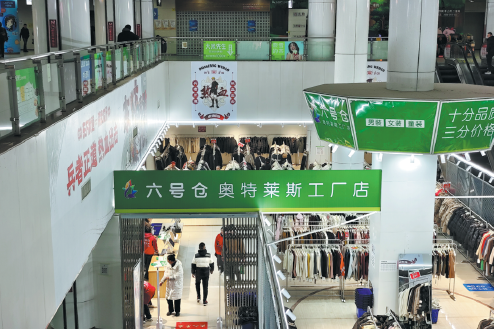FDA approves Chinese cancer treatment


The United States Food and Drug Administration's approval for Chinese biomedicine company BeiGene Ltd's Brukinsa (zanubrutinib) capsules marked a breakthrough for Chinese drug developers. It is the first time an innovative therapy from a Chinese mainland drug developer will enter the US market, while the majority of new drugs, especially cancer therapies, from the Chinese market are imported, industry insiders said.
The FDA announced on Friday Beijing time its Accelerated Approval of the drug for treatment of adult patients with mantle cell lymphoma who have received at least one prior therapy, based on the overall response rate or how many patients experience a complete or partial shrinkage of their tumors after treatment.
Accelerated Approval is designed for drugs that treat serious conditions to fill an unmet medical need based on results that are considered to be reasonably likely to offer clinical benefits to patients. The FDA accepted the application in August, granting it Priority Review.
Previously, the FDA had designated the drug a Breakthrough Therapy in January, a first for cancer therapies developed by Chinese companies as well as new drugs from Chinese mainland overall.
Mantle cell lymphoma, or MCL, is a rare, aggressive form of non-Hodgkin's lymphoma, a cancer originating from the white blood cell called "lymphoma".
In the US, MCL represents 3 to 10 percent of all non-Hodgkin's lymphoma, and usually responds well to initial treatment, but eventually returns or stops responding as cancer cells continue to grow, according to the FDA announcement.
Wu Xiaobin, president of BeiGene and general manager of BeiGene China, said the drug will be officially launched in the US market probably within the year, with commercial staff already recruited and trained.
He believes its entrance into the US, the world's most strictly regulated and largest pharmaceutical market, will boost Chinese drug makers' self-confidence eyeing overseas markets.
Shi Lichen, founder of medical consultancy Beijing Dingchen Consultancy, said the approval reflected Chinese pharmaceutical companies' increasing attention to innovation and new drug research and development.
He commented that due to changes in regulatory and market environment, including faster new drug registration process, lower market tolerance for low-end generics, and fierce competition to get onto hospital purchase lists, Chinese pharmaceutical companies have had to build up innovation and R&D capabilities to increase competence.
"The FDA approval for Brukinsa, a chemical drug, highlighted the increased R&D capability of Chinese pharmaceutical companies, and was also of great help for China-developed drugs to reach a higher acceptance rate in both domestic and overseas markets," he said.
The approval indicated Chinese drug developers' increasing capability, and ignited hope to challenge the expensive prices of imported new cancer drugs, according to Wu.
"China has a population of 1.4 billion, with 4 million new cancer cases arising annually, but around 90 percent of innovative and patented cancer drugs in China are imported, and highly-priced," he said.
"We already have world players in industries such as heavy equipment manufacturing, high-speed trains and IT, and now China's biomedicine is also gaining more presence in the world as it catches up with the top-tier leaders."
Wang Lai, BeiGene's senior vice-president, said data from the phase-2 clinical trial conducted in China since early 2017 among patients with relapsed or refractory MCL, used in the application accepted by the FDA in August, showed Brukinsa had higher efficacy than the other two similar drugs - AstraZeneca's Calquence (acalabrutinib) and Johnson & Johnson and AbbVi's Imbruvica (ibrutinib).
The complete response for Brukinsa, or the absence of all detectable tumors, reached 59 percent among patients with relapsed or refractory MCL, and that for Calquence and Imbruvica were 40 percent and 21 percent respectively.
Additionally, very good partial response of Brukinsa, or close to complete response, reached 43 percent among patients with relapsed or refractory Waldenstrom macroglobulinemia, or WM, a rare type of cancer that begins in the white blood cells called lymphoplasmacytoids, and plasma cells, while that for Calquence and Imbruvica were only 29 percent and 16 percent respectively.
The FDA said 84 percent of patients had tumor shrinkage with a median duration of response (time between the initial response to therapy and subsequent disease progression or relapse) of 19.5 months, in a single-arm clinical trial of Brukinsa including 86 patients with MCL who received at least one prior treatment.
The trial was supported by an additional single-arm trial that included 32 patients, in which 84 percent of patients had tumor shrinkage with a median duration of response of 18.5 months.
Since Brukinsa was granted Accelerated Approval, further clinical trials may be required to verify and describe the drug's clinical benefit, according to the FDA.
The drug was also granted Fast Track designation by the FDA for the treatment of patients with WM in July 2018.
New drug applications to China's National Medical Products Administration for relapsed or refractory MCL in August 2018, and for relapsed or refractory chronic lymphocytic leukemia or small lymphocytic lymphoma, later in October 2018, have been accepted and granted priority review.
The company said it believes approvals from NMPA will soon be granted.



































